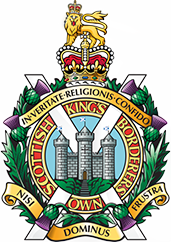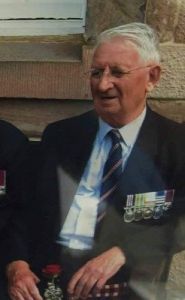Colour Sergeant John (Cush) Common MM – Imperial War Museum Interview
Borderers,
John (Cush) Common, fine Borderer from Coldstream, was awarded the Military Medal whilst in action on Hill 355 (photograph above) Korea, some years ago he was interviewed by the Imperial War Museum. To listen to Cush’s fascinating account of his time in Korea and elsewhere click on the following link.
http://www.iwm.org.uk/collections/item/object/80019427
The recording was made some time ago. Therefore, dependant on your operating system, headphones may be necessary.
INTERVIEW CONTENT
REEL 1
Background in Coldstream, 1930-1950: family; education; employment. Enlistment and training with 1st Bn Black watch in GB and Germany, 1950-1951: call-up for National Service, 1950; character of training at Inverness; posting to 1st Bn Black Watch in Berlin; guard duties at Spandau Prison; reasons for volunteering for service in Korea. Period on draft to Korea, 1951: attitude to losing regimental identity; flight from GB to Singapore; voyage from Singapore to Japan via Hong Kong aboard HMS Unicorn; training in Japan; reception at Pusan. Recollections of operations with 7 Platoon, C Coy, 1st Bn King’s Own Scottish Borderers in Korea, 1951-1952: reception at unit; sight of 6th ROK Div in retreat.
REEL 2
Continues: face-slapping in ROK Army; attitude of Z reservists; problems negotiating hills; problems with boots; conversation with US soldier; reaction to sight of disabled Centurion tanks and casualties on River Imjin 5/1951; patrols over River Imjin, summer 1951; attack on Hill 432, c6/1951; use of Korean porters; entertainments; relations between Australian and New Zealand troops; key nature of Hill 355; booby trapping of land-line; contact with French Canadian troops; narrow escape from accidental Bren gun firing; unit casualties during attack on Hill 355.
REEL 3
Continues: capture of Chinese equipment and bodies on Hill 355; contracting malaria and his ambition to be sent to Norwegian Mobile Army Surgical Hospital; return to unit; problems of wet weather; reaction to discovery of his being lousy; sound of Chinese digging at night; casualties from Chinese self-propelled gun-fire; start of Chinese attack, 5/5/1951; effect of shelling; orders to retire from trenches, 6/11/1951; character of Chinese ground attack, 5/11/1951; opinion of Chinese troops; condition he was in after action, 5/11/1951- 6/11/1951; how lack of money delayed his taking leave in Tokyo; contrast in pay between regular soldiers and National Servicemen.
REEL 4
Continues: danger of VD on leave in Tokyo; attitude to return to front-line in Korea, 12/1951; leave period in Seoul, 1952; period in Samichon Valley, 1/1952-4/1952; patrolling in Samichon Valley; building the Kansas Line.

